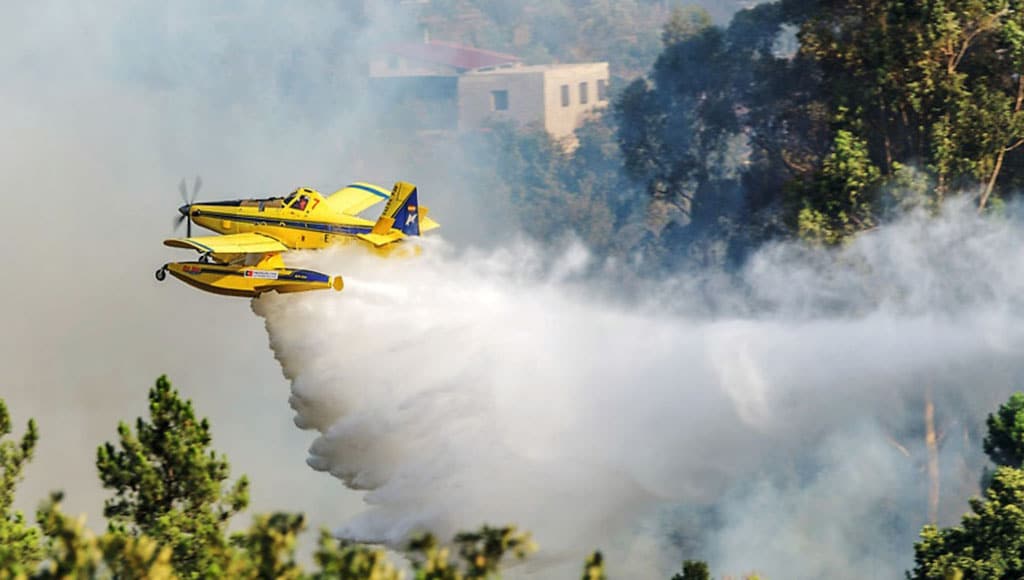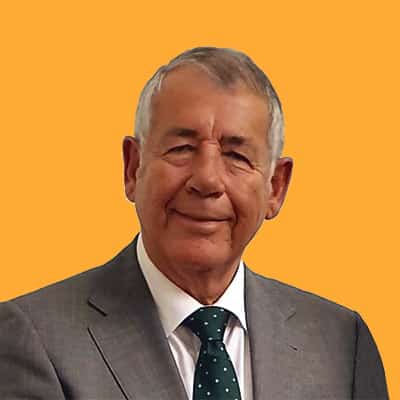The rural firefighting system, Dispositivo Especial de Combate aos Incêndios Rurais, known as the DECIR, has been reinforced since Monday, July 1 to reach its maximum capacity, with 14,155 operatives, 3,162 teams and 3,174 vehicles now on standby, with 72 aerial resources being available. “Delta” phase, as it is known, lasts until September 30, with resources increasing slightly since the same period in 2023.
Traditionally, this time of the year is when there are a greater number of rural fires with the potential to burn with some intensity, although in more recent years some major fires have occurred outside this period, including the October 2017 fires, in which over 40 people died.
A few days ago, the National Commander of Emergency and Civil Protection, André Fernandes, gave an interview to Jornal de Notícias in which he explained the strategy to be adopted during this period. He gave an assurance that the combat device (DECIR) is prepared to respond to large-scale rural fires, but the objective is to “try to stop as much as possible” the fires when they are in the initial phase. The initial phase is in the first 90 minutes of response to a fire and, in 2023, this was achieved in 90% of all fires.
At Safe Communities Portugal, we closely monitor fires and the impression we have is what the ANEPC describe as “muscular initial attack” has been very successful. Of nearly 8,000 fires last year, only 10% had the potential to turn into major fires, but the result was only one major fire, which was in the Odemira region.
André Fernandes statement confirms this: “What we have been doing is trying to stop as much as possible, or reduce, the number of fires that progress to expanded attack (larger scale) and, if they do, here we have the prepared device, with the technical capacity, that expanded attack nowadays requires.”
The use of the word “nowadays” reflects reality, due to extreme weather conditions and the huge amount of fuel around. Therefore, fires have the potential to burn with great intensity and spread at a quicker rate, sometimes to a point where the fire becomes more difficult or impossible to suppress through normal combat means – which was seen in the fires of 2017 and some other major fires since then.
According to André Fernandes, “fires are put out at birth. We cannot let fires grow, so the device is designed to meet the existing conditions. The device we have was designed and prepared to deal with the conditions we have in our territory, where there is still a large amount of fuel”, highlighting the importance of using air resources, together with land resources, to “stop” a fire from the start.
He also highlighted that the existing conditions and climate change have changed “the paradigm a little”, in which “in this critical period there is a greater probability that a minimal occurrence could generate a major occurrence”.
Awareness and preparedness
Rural fire management, however, is not just the role of the authorities and firefighters; everyone has a role to play – this means society as a whole. Creating awareness of the risk of fires, and the dangers that these pose, is the first stage of being prepared.
The more prepared we are, the more that can be done firstly to reduce the number of ignitions, and secondly, should a fire start, to reduce its impact. The main steps are cleaning land around properties and adopting the type of behaviour that avoids fires starting in the first place.
It is also about recognising that, during this summer, there will be periods with very high temperatures, heatwaves and a severe drought. It is in these occasions, even when the combat device with reinforcements is in place, that the system can be placed under stress if multiple fires occur simultaneously.
More than ever, it is at these times that the public need to understand the important role they can play, by studying the risks and following the warnings issued by the IPMA and ANEPC, in order to help protect life and property.
In particular is the importance of not burning cut and piled waste. This practice can become out of control amounting to over 50% of all fires, 31% through arson and 10% by accident. In fact, 98% of all fires are through human cause.
According to André Fernandes, “the fewer ignitions there are, the less likely we are to have major fires, and this is where we have been gaining, not only with specialization, with the work that has been done in prevention and in the evolution and adaptation of the device, but, above all, people have been adapting their behaviours in the face of the situation”.
Certainly, there have been more awareness-raising campaigns. There are campaigns that bring the authorities much closer to citizens, both through ‘Portugal Chama’ and other campaigns carried out at municipal level. There is greater integration of work with municipal councils and their municipal civil protection coordination departments.
At Safe Communities, which is a qualified Civil Protection Volunteer Organisation under Portuguese law, our campaign involves: the extensive use of social media (through our three Facebook pages/groups), printed and on-line media, radio, the SCP newsletter and through our newsletter, and seminars/exhibitions in getting key messages across.
The paradox
Recently, the President of the Republic said that we cannot see what happened in Pedrógão again, and Tiago Oliveira, president of the Agência para a Gestão Integrada de Fogos Rurais (AGIF), said that there is a possibility that it could.
Is there a paradox here between these two positions?
Tiago Oliveira explained: “If the number of fires is reduced, as we have done,” but the management of the forests is not improved, through better forestry, better integration with the use of domesticated animals, more controlled fires undertaken at appropriated time, then we will have a very large territory in the future vulnerable to large fires. It is not a question of “if we will have them”, it is “when we will have them”.
By David Thomas
|| features@algarveresident.com
David Thomas is a former Assistant Commissioner of the Hong Kong Police, consultant to INTERPOL and the United Nations Office on Drugs and Crime.
In 2011, he founded Safe Communities Algarve to help the authorities and the community prevent crime. It is now registered as Associação SCP Safe Communities Portugal, the first national association of its type in Portugal.
913 045 093
info@safecommunitiesalgarve.com
www.safecommunitiesportugal.com















